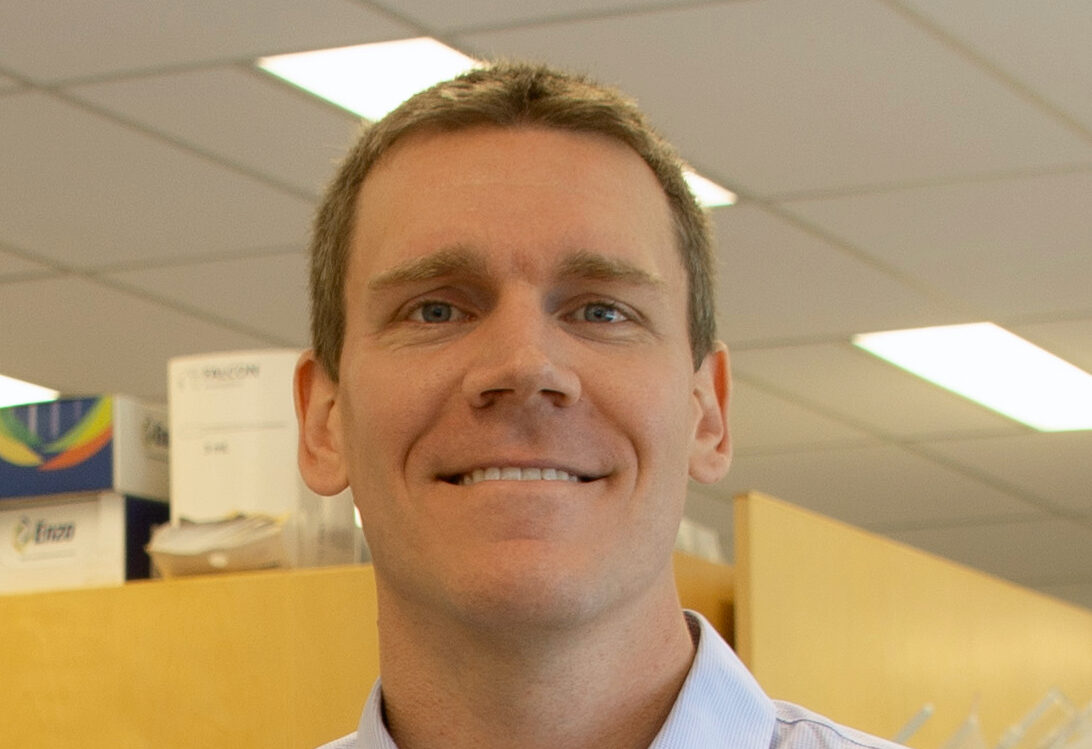Meet Dr. Christopher Thome: Radiation biology researcher at NOSM University
Posted on August 22, 2025
From medical imaging to naturally occurring radiation in the air and ground, low level radiation surrounds us. While we know the impacts of very high radiation levels, there are still uncertainties surrounding the impacts of low level daily naturally occurring radiation levels.
This is where Dr. Christopher Thome’s research comes in. As a researcher, Associate Professor and mentor to learners at NOSM University, he researches the biological effects of ionizing radiation. “Our research tries to understand from a biological and biochemical perspective the impact of these lower levels of radiation on our cells and our tissues when we are exposed,” he says.
Radiation biology research has medical applications, but it also furthers scientific knowledge. Understanding the effect of natural radiation around us can put people at ease.
“Many people become concerned when they hear the word ‘radiation,’ often associating it with atomic bombs, nuclear accidents or cancer. But that’s not the whole story,” Dr. Thome says. “Radiation occurs naturally and is used in many beneficial ways, particularly in medical applications. My goal is to help people better understand what radiation is, it’s effects and the various applications it can have.”
Dr. Thome developed an interest in the field during his PhD studies with Dr. Douglas Boreham, a leading expert on radiation biology at NOSM University. With a background in both biology and physics, Dr. Thome found radiation biology was the right fit for him with the practical applications and research potential. Today, almost ten years later, Dr. Thome runs his own research lab at NOSM University. He also supervises students who have received awards, grants, published articles and are now working and researching in the field.
In the past year, Dr. Thome’s lab has published 11 papers on the effects of radiation. Taken together, the research shows that background low level radiation is not harmful to humans. On the contrary, our cells have protective mechanisms to counteract the effects of low dose radiation. Upcoming research will investigate the impact of removing natural background radiation.
In addition, Dr. Thome is also working on a project that examines the respiratory health impacts of radon gas on people and ways to mitigate it along with co-researchers at NOSM University and Laurentian University.
He notes that collaboration between institutions across Northern Ontario including Health Sciences North, Laurentian University and international groups make NOSM University an exceptional environment for research.
“NOSM University has supported our research by providing the facilities and equipment necessary to conduct this research,” he says. “The collaborative efforts among multiple faculty members makes it a great environment.”

